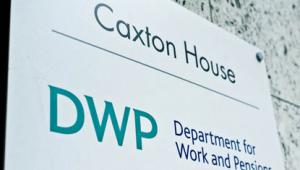A study from the Institute for Fiscal Studies said that large gains and losses from the benefit are “common” but overall more people are likely to be worse off.
Up to 1.6 million adults will gain more than £1,000 extra a year but 1.9 million will lose at least that much, according to the IFS briefing note out today.
The IFS said that those losing at least £1,000 per year tended to belong to groups including: those with financial assets greater than £6,000, self-employed low earners, couples where one person is above state pension age and those claiming disability benefits.
But those hit hardest are also more likely to find themselves only temporarily poor. The aforementioned groups are 1.5 – 2 times more likely to find that their period of low income is temporary, compared to other low-income groups.
The exception to this trend are those who claim disability benefits and the IFS noted that this group is “especially likely to be persistently, rather than temporarily, poor”. Those previously entitled to the ‘severe disability premium’ – generally given to those living alone and who struggle with basic living - could lose up to £2,230 a year.
In the short term, universal credit will hit the temporarily poor the hardest, the IFS said, and the effect on the persistently poor is considerably less. However, “as an overall cut to benefits, universal credit hits the persistently poor harder than those with higher longer-term incomes”.
The research showed that those whose average incomes over eight years are in the lowest tenth of the population – the persistently poor – lose on average 1.1% of their income over the eight years from universal credit – more than any other higher-income group.
Tom Waters, research economist at the IFS and author of the briefing note, said: “Universal credit changes benefit entitlement for three-quarters of those entitled to means-tested benefits, and 30% see a change of at least £1,000 per year.
“The biggest losses experienced as a result of the switch are mostly down to a small number of specific choices the government has made about universal credit’s design, such as its treatment of the low-income self-employed and people with financial assets.
“Many of the those very large losses do turn out to be temporary for those concerned. However, even when measuring people’s incomes over relatively long periods, universal credit still hits the persistently poor the hardest on average.”
Labour’s shadow work and pensions secretary commented: “Universal credit was supposed to lift people out of poverty but this analysis makes clear that it is hitting the poorest hardest.
“Pensioners with working-age partners and disabled people who would have been eligible for disability premiums are among those to receive the harshest treatment under universal credit.”
A Department for Work and Pensions spokesperson said: “This report wrongly assumes that everyone was claiming their full benefit entitlement under the old system, which they weren’t because the system was overly complex.
“With recent work allowances changes, 2.4 million households will be up to £630 per year better off and people will access around £2.4 billion of previously unclaimed benefits.”
Read Karen Day’s feature for PF on the whether universal credit will ever deliver on its promises.










